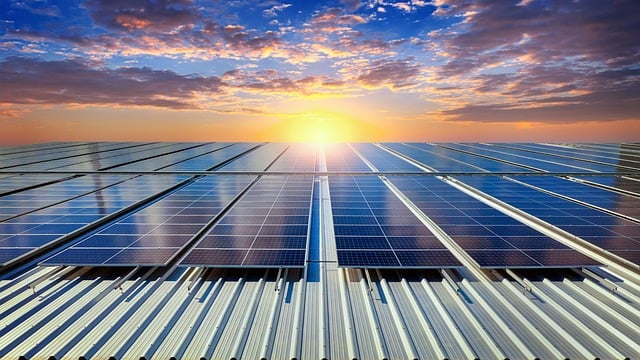According to UN estimates, India’s population is nearly 18% of the world population, putting the nation at the top of the list of countries by population. With each year passing by, this number only expands, and so does the need for energy. In fact, it has become a growing concern for the top power companies.
The energy industry is addressing the rising demand by transitioning towards a sustainable model through implementing renewable resources – most notably, solar energy. The shift to solar is crucial due to limited fossil fuels and excessive consumption by the populace.
The exorbitant monthly electricity bills make it challenging for the average Indian to afford. However, quite recently, the Indian government announced the Free Solar Rooftop Scheme 2024 (PM Surya Ghar: Muft Bijli Yojana) initiative, through which eligible individuals can install solar panels at a cheaper cost.
Not only does this programme aim to alleviate the growing concerns surrounding energy needs, but the switch to solar also means significant cost savings for the masses. Read on for more details on the Free Solar Rooftop Scheme 2024, including benefits, basic eligibility, registration procedure, etc.
Contents
PM Surya Ghar Muft Bijli Yojana 2024: Everything You Need to Know

Beneficiaries of the government’s newly proposed rooftop solar initiative, Pradhanmantri Suryodaya Yojana, will receive free electricity for up to 300 units per month, as disclosed by Finance Minister Nirmala Sitharaman in her presentation of the interim budget for FY25. Sitharaman emphasised that the programme aims to empower one crore homes to sell excess solar energy, leading to projected annual savings of ₹18,000 crores and more.
Prime Minister of India, Narendra Modi, announced the government’s further plans to promote and develop the adoption of rooftop solar installations across the country through the PM Surya Ghar Muft Bijli Yojana 2024 scheme (Source: X). The state-run REC (Rural Electrification Corporation) is in charge, which will provide loans totalling up to ₹1.2 lakh crore to facilitate the installations.
The initiative comes at a juncture when the government’s goal for rooftop solar installations has faced sluggish progress. In May 2023, the parliamentary standing committee on energy noted that only 5.87 GW of rooftop solar panels were installed a targeted 40 GW by the end of 2022, representing less than 15% of the goal. As reported by the Ministry of New and Renewable Energy, the grid-connected solar capacity in India currently stands at 11.07 GW out of the total capacity of 72.30 GW.
However, under the Indian government’s strategy, solar power is expected to constitute 292 GW to the overall 500 GW renewable capacity by the year 2030. With the government now extending financial support to residential solar rooftop projects, new beneficiaries can enjoy subsidies starting from ₹10,000 through the National Rooftop Solar Portal. Notable aspects of the Free Solar Rooftop Scheme encompass:
- Deployment of solar panels in institutional housing, resulting in up to a 50% decrease in electricity bills.
- Solar panels offer energy for up to 25 years, with the initial setup cost recouped within five to six years.
- Option to either self-deploy the solar panels or choose the RESCO
- A 40% subsidy is available for installing solar panels up to 3 kW per house, with an additional 20% government subsidy for 4 to 10 kW installations.
- Minimal rooftop area requirement of 10 square metres for a 1 kW solar panel system installation.
For further details, interested individuals can reach out to their local energy distribution office.
Benefits of Free Solar Rooftop Scheme 2024
The Free Solar Rooftop Scheme extends numerous advantages to Indian citizens, such as:
- Implementation of solar panels on the rooftops of one crore residents.
- Provision of cheaper energy to financially disadvantaged residents, leading to a decrease in monthly power bills.
- Potential annual savings of ₹18,000 per home (or more) through free solar electricity and selling excess power to distribution companies.
- Facilitation of electric vehicle charging
- Heightened awareness about solar energy, fostering a greater adoption rate.
- Diminution in reliance on fossil fuels contributes to reduced environmental pollution (cutting down on nearly 720 million tonnes of CO2-equivalent emissions).
- Creation of entrepreneurship opportunities for numerous Indian vendors engaged in the supply and installation of solar panels.
- Employment openings for skilled youth in solar panel installation, manufacturing, logistics, sales, maintenance, and other services.
As for the pros of installing solar panels, this setup reduces the need for electricity from the main power grid, saving money. A smart way to make this even more cost-effective is through ‘Net Metering’, through which any surplus solar-produced power can be sold to the electricity companies for a fair price. This helps cut down on your total power bills by making sure what you use and what you produce are well-balanced.
Installation Subsidies
The recommended rooftop solar panel capacities for households are determined based on average monthly electricity consumption. Within the framework of the Solar Rooftop Scheme, the Indian government is set to extend the following subsidies for solar panel installations with corresponding subsidies outlined as follows:
1. For electricity consumption of 0-150 units:
- Suitable Rooftop Solar Plant Capacity: 1-2 kW
- Subsidy: ₹30,000 to ₹60,000
2. For electricity consumption of 150-300 units:
- Suitable Rooftop Solar Plant Capacity: 2-3 kW
- Subsidy: ₹60,000 to ₹78,000
3. For electricity consumption exceeding 300 units:
- Suitable Rooftop Solar Plant Capacity: Above 3 kW
- Subsidy: ₹78,000
[Source: https://pmsuryaghar.gov.in]
Eligibility Criteria for Free Solar Rooftop Scheme 2024
To qualify for the PM Surya Ghar Muft Bijli Yojana or Free Solar Rooftop Scheme 2024, applicants must meet the following criteria:
- Applicants must be legal citizens of India.
- Eligibility extends to individuals belonging to poor and middle-class households.
(Specific income brackets may be defined to determine eligibility) - Applicants must own the residence where the rooftop solar installation is intended.
(It’s so that the scheme’s benefits directly impact homeowners) - Applicants must have a valid electricity connection and not have availed of any other subsidy for solar panels.
- Applicants should adhere to local regulations and guidelines governing the installation of rooftop solar panels.
(One must ensure the project aligns with safety and environmental standards) - Submission of necessary documentation during the application process, including but not limited to:
- AADHAR Card
- PAN Identification Card
- Address Proof
- Income Certificate
- Electricity Bill
- Bank Details / Passbook
- Passport-size Photo
- Mobile Number
Steps to Register for Free Solar Rooftop Scheme 2024
To apply for the Free Rooftop Solar Scheme or PM Surya Ghar Muft Bijli Yojana, use these steps:
- Visit the official PM Surya Ghar: Muft Bijli Yojana National Portal from your phone or computer web browser.
- Tap or click the ‘Apply for Rooftop Solar’ button under the Quick Links section on the left-hand side of the webpage.
- Choose your state, district, and electricity distribution company, then type in your consumer account number and click Next.
- Provide your mobile number and email address. Continue following the on-screen prompts.
- Next, sign in with your registered consumer account number/mobile number, then fill in the provided application form.
- After applying, wait for feasibility approval from DISCOM. Upon approval, you may proceed to install the solar panel system through a registered vendor.
- Submit the solar plant details and apply for a net meter post-installation.
- After the net meter installation and DISCOM inspection, a commissioning certificate will be generated from the PM Surya Ghar Muft Bijli Yojana
- Once you have your commissioning report, submit your bank account details and a cancelled cheque on the Portal. The subsidy will be credited to your bank account within 30 days.
For those considering applying for the scheme, the PM Surya Ghar Muft Bijli Yojana Portal also offers a Solar Rooftop Calculator tool. It allows for determining the range of solar panels by calculating various factors, i.e., location, funding, energy generated, rooftop area, solar plant capacity, sanction load, etc.
Bottom Line
The Indian government has initiated an extensive campaign to promote awareness and encourage households to apply for the PM Surya Ghar: Muft Bijli Yojana or the Free Solar Rooftop Scheme, in which solar photovoltaic panels are to be placed on top of residential properties and commercial buildings on subsidised costs.
Interested individuals are free to register at pmsuryaghar.gov.in to avail themselves of the scheme’s many benefits. The following article has highlighted the registration procedure alongside the eligibility criteria, core benefits, and more in detail.
